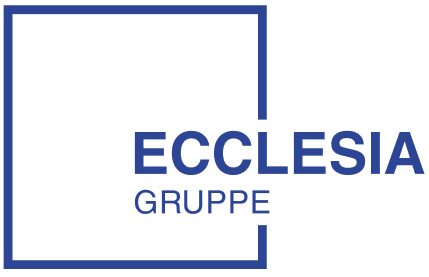
New year, new regulations: This will change in 2025
Digitalisation
E-invoicing: From the start of 2025, all companies in Germany will be obliged to be able to receive e-invoices in business-to-business (B2B) transactions. These must be available in a structured electronic format that enables electronic processing. The usual file formats in Germany are ZUGFeRD and X-Rechnung. Important to know: Simple PDF invoices do not fulfil the requirements. In addition to the receipt of e-invoices, further changes are planned: From 2027, companies with a previous year's turnover of 800,000 euros must also be able to issue e-invoices themselves in the B2B sector; one year later (2028), this requirement is to come into force regardless of turnover. Progress in the area of e-invoicing aims to automate processes and reduce paper consumption.
Digital employment contract: To date, the German Act on Evidence has obliged employers to provide the main contractual conditions such as the place of work, remuneration, holiday entitlement and notice period in writing. In future (from 1 January 2025), simple electronic transmission without a qualified signature will be sufficient.This also includes a PDF document sent by email.Significant exceptions apply, for example, to fixed-term employment contracts and non-competition clauses, which must continue to be in writing with a handwritten signature.
Digital tax assessment notices: Tax assessment notices and other administrative tax documents have so far been sent by post. In future, it will be possible to retrieve tax assessments and other tax administration files digitally.The previously envisaged consent of the recipient is no longer required; instead, an objection solution is planned.
Cash register systems: From the start of the new year, companies must report their electronic cash register systems to the tax office.The deadline for cash register systems purchased before 1 July 2025 is 31 July 2025, while systems purchased after 1 July 2025 must be reported within one month of purchase.
Finances
Pension: According to preliminary calculations by Deutsche Rentenversicherung, pensioners can expect a pension increase of 3.5 percent from 1 July 2025. Deviations from this current forecast are still possible, as the final figures on wage trends will not be available until March.The increase will deviate in 2024: The forecast increase of 3.5 per cent resulted in only 1.07 percentage points more than in the previous year.
Minimum wage: From 1 January 2025, the statutory minimum wage will be 12.82 euros per hour. Employers will then be obliged to check whether the new requirement is being met and whether employment contracts may need to be adjusted. This will also result in a new minimum training allowance. Apprentices in their first year of training will now receive a minimum wage of 682 euros per month, in the second year a minimum of 805 euros and in the third year 921 euros. If the training contract is based on a collective agreement, the remuneration agreed in the collective agreement applies.
Housing benefit: The adjustment of housing benefit by around 15 per cent or 30 euros will bring some financial relief to around two million households - especially single parents, families and pensioners.
ESG
Plastic packaging: A new EU law bans the use of the plasticiser bisphenol A - better known as BPA - in food contact packaging from the end of 2024. This affects plastic packaging, food cans and drinking bottles.The chemical substance is said to damage the hormone balance and the immune system.Manufacturers must therefore switch to BPA-free alternatives to protect consumers.
Increase in CO₂ tax: From January 2025, the CO₂ tax will continue to rise, along with the prices of petrol, oil and gas. The price per tonne of CO₂ is to be increased from 45 to 55 euros. An increase to 50 euros was forecast for the end of 2023. The clear aim is to reduce emissions and incentivise people to switch to climate-friendly alternatives.
Obligations for fireplace owners: To ensure that winter evenings by the fire remain cosy in 2025, the law stipulates that fireplaces, wood-burning stoves and stoves installed between January 1995 and March 2010 must comply with the specified values for particulate matter and carbon monoxide. This means that the fireplaces must not emit more than 4 grams of carbon monoxide and 0.15 grams of dust per cubic metre of flue gas. A tip: District chimney sweeps can measure the values precisely and inform you about the obligation to clean up.
Tax exemption for small photovoltaic systems: Photovoltaic systems with a gross output of up to 30kWp have already been tax-exempt for single-family homes for several years. The previous upper limit of 15kWp for apartment blocks and commercial properties will now also be extended to 30kWp from January 2025.
Smart meters: Households with more than 6,000 kWh of electricity consumption per year and owners of generation systems with more than 7kW of installed capacity must have a smart meter installed next year.This regulation also applies to households with special appliances such as heat pumps or wall boxes. The aim of installing smart meters is to promote energy efficiency and enable the use of dynamic electricity tariffs.
